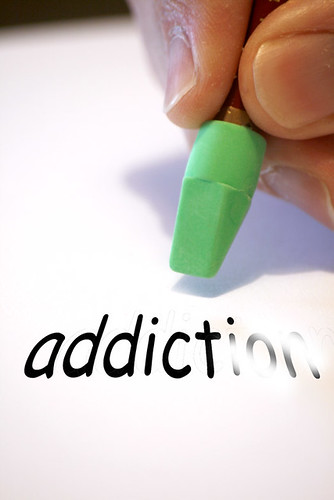Struggling with an addition can be a very isolating process. However, it’s important to remember that you’re not alone. Estimates suggest that somewhere between 15 and 30 percent of Americans will struggle with alcohol or drug dependency during their lifetime. Read on to discover how to come to terms with your own addiction and take steps towards recovery.
Admit That You Have a Problem

Image via Flickr by Alan Cleaver
The first step towards recovery is admitting that you have an addiction in the first place. This can be challenging, especially in the case of social drugs such as alcohol. However, there are some key signs to look for.
Addicts become consumed by their vices, generally at the expense of their professional and personal lives. They notice they can tolerate greater amounts of alcohol or their drug of choice, and often experience withdrawal symptoms if they have used it in a while. They also find curbing their habit is difficult. Are these characteristics sounding familiar to you? If so, it’s probably time to admit that you have a problem.
Assess the Impact of Your Addiction
Coming to terms with your addiction requires you to understand that it doesn’t exist in isolation. Carefully consider your behavior and the way it’s affected the people around you. This process is likely to be painful, but confronting the damage your addiction’s done will help you start doing things differently.
Remember that even though you’ve hurt your nearest and dearest, these people love you. You have a responsibility to them and to yourself to turn your life around.
Recognize That You Can’t Beat This Alone
Addiction isolates drug and alcohol abusers from friends and family members, but these loved ones are crucial in recovery. Reach out to those people who’ve been there for you throughout your life and spend time with supporters rather than enablers.
Also consider looking outside your immediate circle to professional help. This can be confronting, but therapists and staff at rehabilitation facilities are trained to guide addicts towards recovery. Drug or alcohol detoxing at 12 Keys or a similar treatment center can put you on the path towards sober living and minimize your chances of relapsing. Joining a support group can also help you share your experiences with others who understand.
Realize Why You Became an Addict
People don’t usually become addicts for no reason. Many addicts suffer from psychiatric disorders. Many have struggled with economic or emotional hardships, or both. As you start overcoming your addiction you’ll look more closely at your life and discover what void your vice filled for you. Analyzing your life in this way can be challenging, but it will also help you discover what you need to bring to your life to survive without alcohol or drugs.
Embrace the Future
Addiction can be a lonely place that seems impossible to get out of. However, to see only such negativity is not completely coming to terms with addiction. Many people beat their addictions, and with hard work and perseverance you can be one of them. Coming to terms with addiction involves coming to terms with the potential of a brighter future.
At times coming to terms with your addiction will be challenging and confronting. However, once you do you can take steps towards overcoming it.


